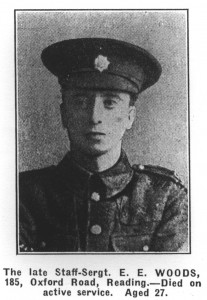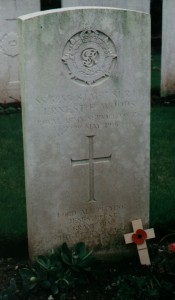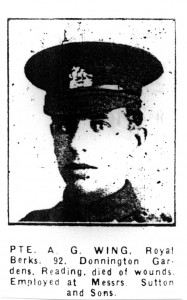William Marshall M.M.
Lance Corporal
2nd Batt. Royal Berkshire Regt.
Old Contemptible
Division 17
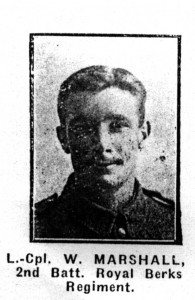 |
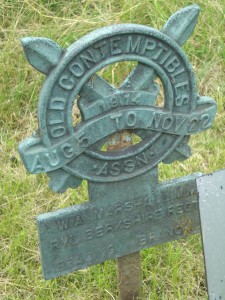 |
Lance Corporal William Marshall was considered by his friends to lead a charmed life and had many narrow escapes whilst doing service at the front. At the battle of Fromelles he was carrying two boxes of bullets when one of them was hit by a bullet. Writing to his mother in July 1915 he simply talks about the weather. “We are having very unsettled weather again, and we are in the trenches. We got wet through going on, and there was another wet night last knight. It makes everything a mess”.
At the outbreak of war he was serving in India but went to France towards the end of 1914. This earned him the right to be called an “Old Contemptible”.
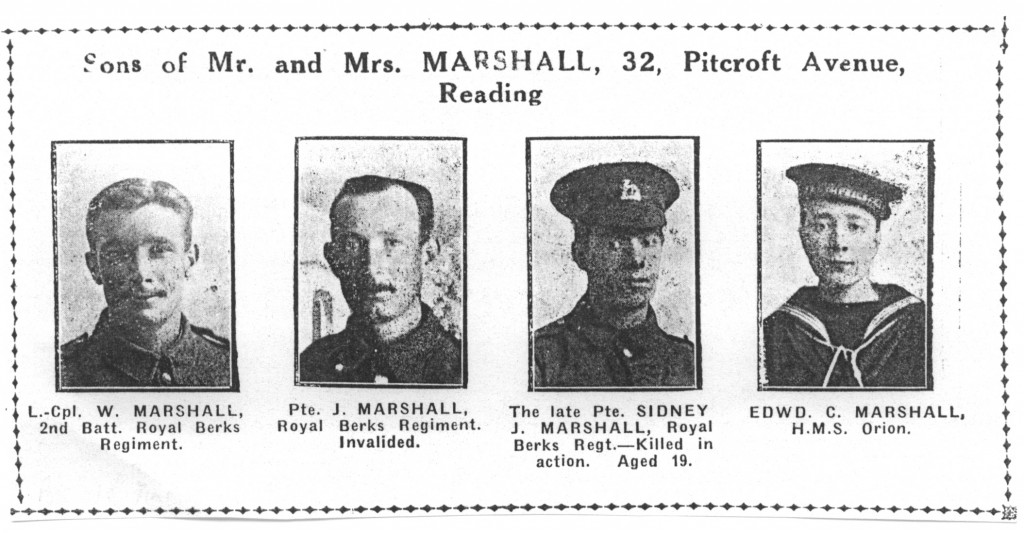 |
He was one of four sons, all of whom served with the forces, of Mr. Joseph and Mrs Mary Marshall of 32. Pitcroft Avenue, Reading. His father and older brother Joseph worked in the biscuit factory and William worked as a butcher before join the regular army. His brother Sidney, aged 19 years, was a machine gunner who was killed in action on Easter Monday 24/4/1916.
William Marshall was awarded the Military Medal in 1916 for rescuing a machine gun. He served at the front for most of his time in France although eventually due to a problem with his foot he was given work behind the lines in Havre.
In 1917 he married Christobel and they had six daughters and one son. In WWII son Ted served in the Army and William worked as an ARP warden. His daughter Marion said that her dad never spoke about his war service. When William died in 1963 aged 72 years he was given a military style funeral by the Old Contemptibles Association. He is buried with his wife and two daughters in the Reading Cemetery. His grave is unmarked except for the marker of the “Old Contemptibles”.
